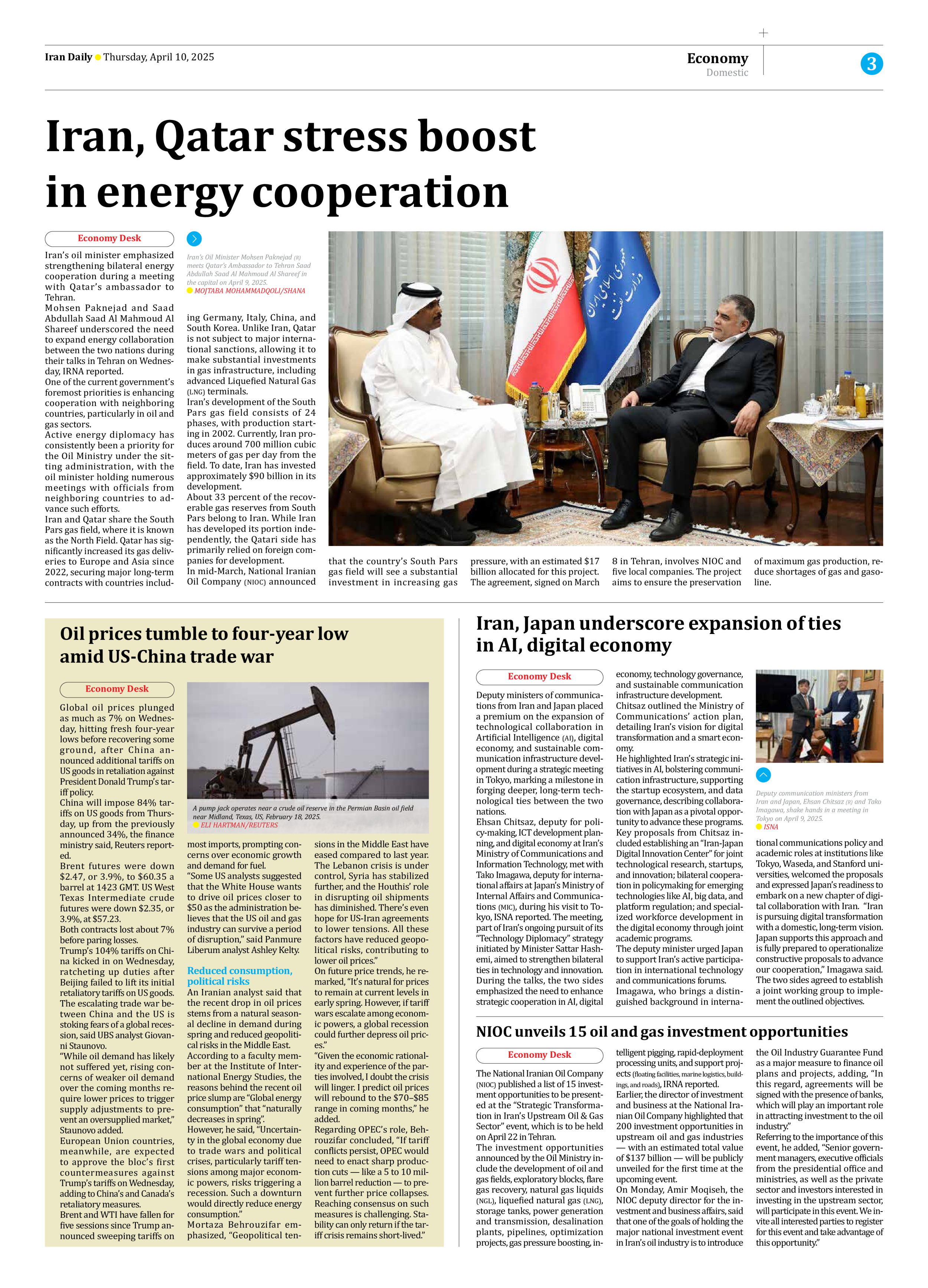
Oil prices tumble to four-year low amid US-China trade war
Global oil prices plunged as much as 7% on Wednesday, hitting fresh four-year lows before recovering some ground, after China announced additional tariffs on US goods in retaliation against President Donald Trump’s tariff policy.
China will impose 84% tariffs on US goods from Thursday, up from the previously announced 34%, the finance ministry said, Reuters reported.
Brent futures were down $2.47, or 3.9%, to $60.35 a barrel at 1423 GMT. US West Texas Intermediate crude futures were down $2.35, or 3.9%, at $57.23.
Both contracts lost about 7% before paring losses.
Trump’s 104% tariffs on China kicked in on Wednesday, ratcheting up duties after Beijing failed to lift its initial retaliatory tariffs on US goods.
The escalating trade war between China and the US is stoking fears of a global recession, said UBS analyst Giovanni Staunovo.
“While oil demand has likely not suffered yet, rising concerns of weaker oil demand over the coming months require lower prices to trigger supply adjustments to prevent an oversupplied market,” Staunovo added.
European Union countries, meanwhile, are expected to approve the bloc’s first countermeasures against Trump’s tariffs on Wednesday, adding to China’s and Canada’s retaliatory measures.
Brent and WTI have fallen for five sessions since Trump announced sweeping tariffs on most imports, prompting concerns over economic growth and demand for fuel.
“Some US analysts suggested that the White House wants to drive oil prices closer to $50 as the administration believes that the US oil and gas industry can survive a period of disruption,” said Panmure Liberum analyst Ashley Kelty.
Reduced consumption, political risks
An Iranian analyst said that the recent drop in oil prices stems from a natural seasonal decline in demand during spring and reduced geopolitical risks in the Middle East.
According to a faculty member at the Institute of International Energy Studies, the reasons behind the recent oil price slump are “Global energy consumption” that “naturally decreases in spring”.
However, he said, “Uncertainty in the global economy due to trade wars and political crises, particularly tariff tensions among major economic powers, risks triggering a recession. Such a downturn would directly reduce energy consumption.”
Mortaza Behrouzifar emphasized, “Geopolitical tensions in the Middle East have eased compared to last year. The Lebanon crisis is under control, Syria has stabilized further, and the Houthis’ role in disrupting oil shipments has diminished. There’s even hope for US-Iran agreements to lower tensions. All these factors have reduced geopolitical risks, contributing to lower oil prices.”
On future price trends, he remarked, “It’s natural for prices to remain at current levels in early spring. However, if tariff wars escalate among economic powers, a global recession could further depress oil prices.”
“Given the economic rationality and experience of the parties involved, I doubt the crisis will linger. I predict oil prices will rebound to the $70–$85 range in coming months,” he added.
Regarding OPEC’s role, Behrouzifar concluded, “If tariff conflicts persist, OPEC would need to enact sharp production cuts — like a 5 to 10 million barrel reduction — to prevent further price collapses. Reaching consensus on such measures is challenging. Stability can only return if the tariff crisis remains short-lived.”







